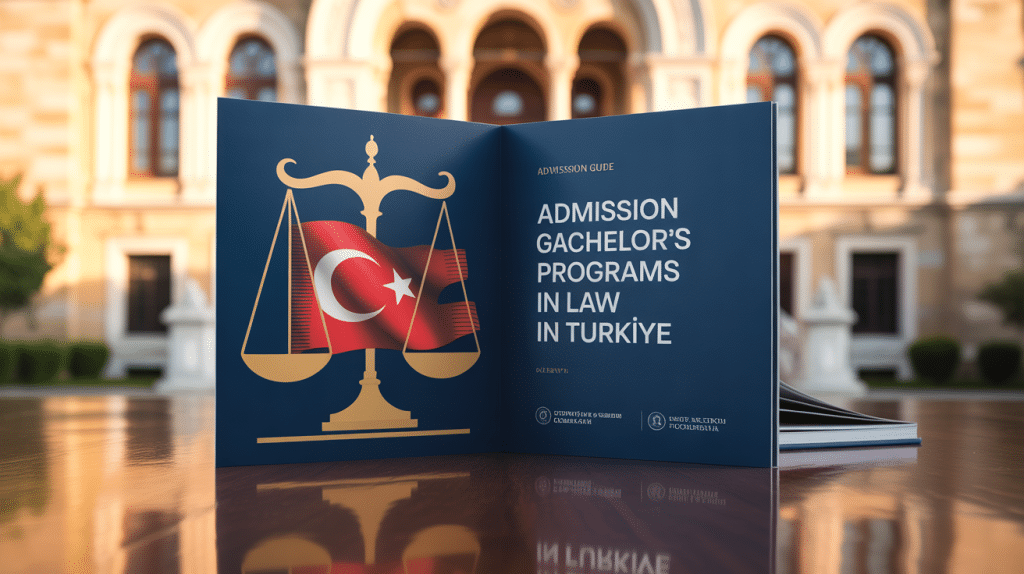Admission Guide for Bachelor’s Programs in Law in Turkiye
Program Duration and Structure
A Bachelor of Laws degree in Turkiye typically spans four years of rigorous undergraduate study. The curriculum is crafted to equip students with a strong grounding in Turkish and international legal principles. Upon completing the bachelor’s program, graduates often opt to pursue a Master of Laws (LLM), which generally takes an additional two years.
Admission Requirements
Public Universities
- High School Diploma: A minimum average score of 70%.
- Aptitude Tests: Prospective students must successfully complete standardized tests such as the Turkish YÖS exam or the SAT.
- Language Proficiency: A proof of proficiency in Turkish, typically demonstrated through a TÖMER certificate.
Private Universities
- High School Diploma: A minimum average score of 50%.
- Language Competence: Evidence of proficiency in the language of instruction, which may be Turkish or English depending on the course’s format.
Notable universities with law programs include Uskudar University, Medipol University, Bahcesehir University, and Aydin University.
Required Documents
- Passport Copy: Should be translated and notarized.
- High School Diploma: Must be certified and translated into Turkish.
- Personal Photographs: Recent photos for identification.
- High School Transcript: Required if the diploma is not yet available.
- Language Proficiency Certificate: A TÖMER certificate showcasing Turkish language proficiency.
Tuition Fees and Costs
Studying law in Turkiye is relatively affordable when compared to many Western countries. The general tuition fees for law programs vary as follows:
- Private Universities: The annual tuition fee ranges from 4,000 to 10,000 USD.
- Public Universities: Typically more affordable, especially if students are eligible for scholarships.
Institutions like Istinye University and Antalya Bilim University offer attractive tuition structures.
Admission Process
The admission process for bachelor’s degree programs in law includes several key steps:
- Application Submission: Students should apply directly to their chosen university.
- GPA Evaluation: The secondary education GPA is an essential factor in assessing applications.
- Educational Qualification: Students must hold a secondary school leaving qualification (Lise Diplomasi), vocational high school diploma (Meslek Lise Diploması), or technical high school diploma (Teknik Lise Diploması).
- Equivalence Certificate: International applicants need to obtain a certificate of equivalence from the Turkish Higher Education Council for acceptable previous education.
Why Study Law in Turkiye?
- Internationally Recognized Degrees: Law degrees from Turkiye are acknowledged globally.
- Diverse Legal Knowledge: Programs incorporate both civil law and elements of Islamic legal tradition.
- Strategic Geographical Position: Turkiye serves as a crucial bridge between Europe and Asia, enhancing diverse legal perspectives.
- Cultural Exposure: Students gain rich cultural experiences that enhance their educational journey.
- Affordable Quality Education: Compared to many Western alternatives, Turkiye offers excellent legal education at reasonable costs.
Programs at universities such as Halic University and Galata University focus on developing critical thinking, analytical reasoning, and robust research skills.
Conclusion
Embarking on a legal education in Turkiye not only provides a strong academic foundation but also equips students for dynamic careers in law. With its diverse programs, reasonable costs, and internationally recognized degrees, Turkiye is an ideal location for aspiring legal professionals.
If you’re considering embarking on this educational journey, contact us today to learn more about how Study in Turkiye can assist you in achieving your academic and professional goals.
Take the Next Step with Study in Turkiye
Explore your options for studying a Bachelor’s in Law in Turkiye. Take advantage of the rich educational opportunities available to international students.

